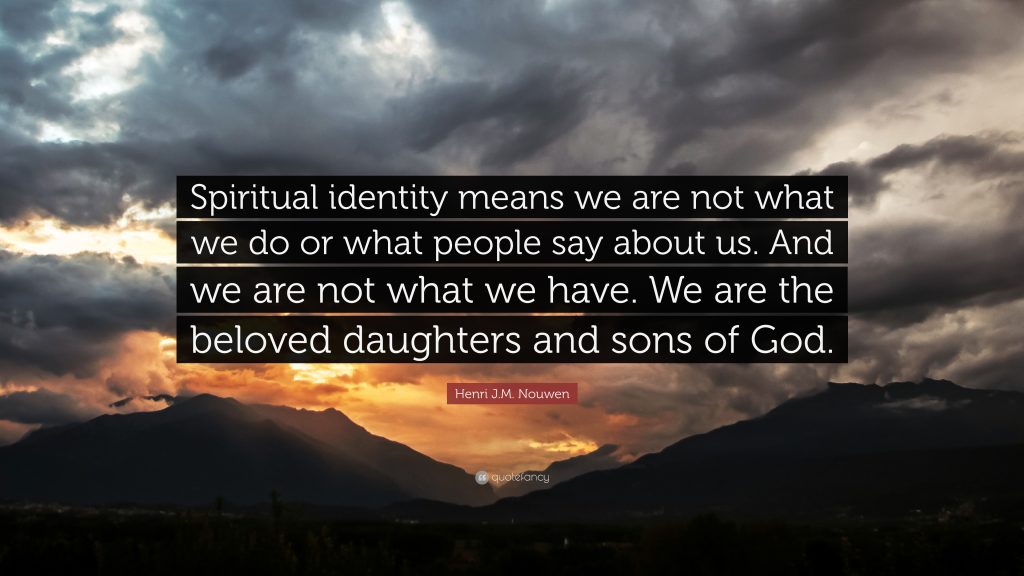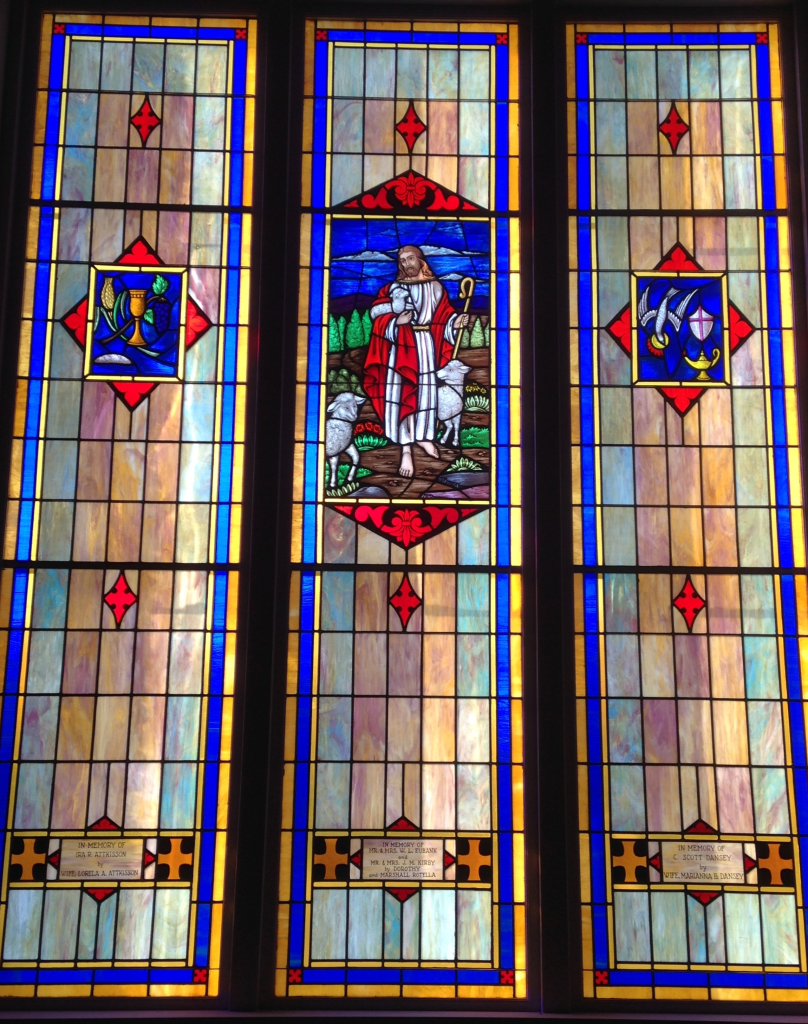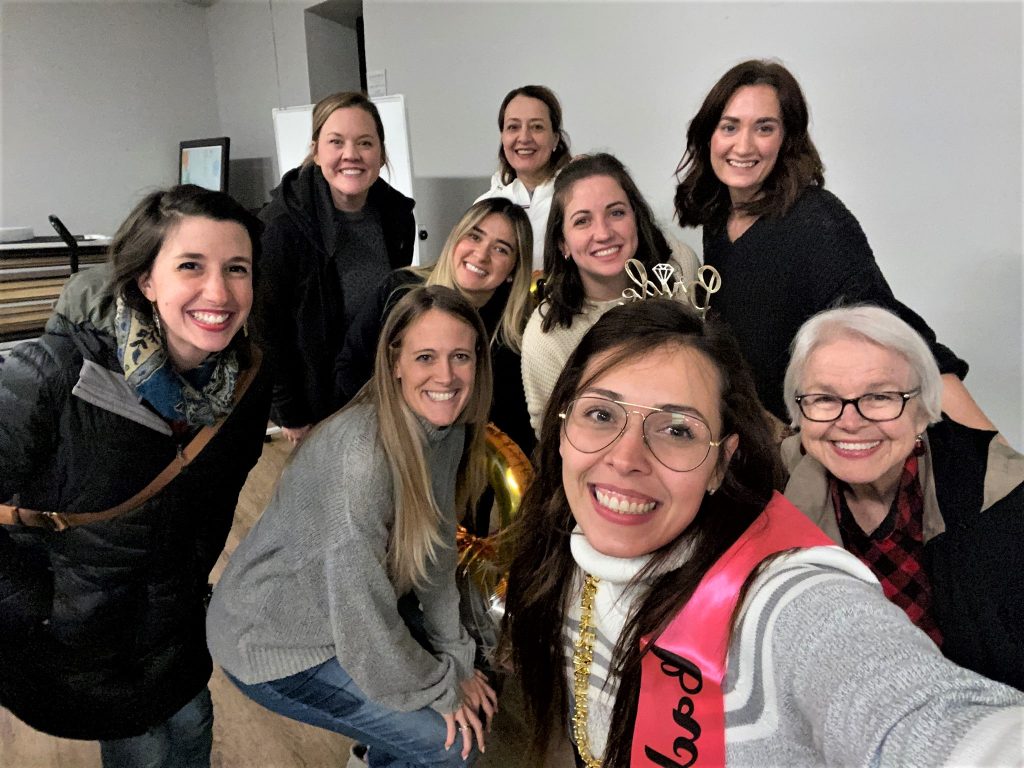 Photo Credit: Highland Park LC, Daily Verses
Photo Credit: Highland Park LC, Daily Verses
Daily our prayers are full of questions. We “inquire (ask from) the Lord”. The questions in our heads don’t always end up in our prayers, but they are there nonetheless.
Earlier this week, I wrote about the discipline of leading with powerful questions. God has certainly shown the way in this.
Why Does God Ask Questions If He Is Omniscient?
He wants us to wonder about Him, about life, about people…with Him. He also means for us to use His own explorations as a model for our interactions – our deep interactions – with each other.
Christian psychiatrist Curt Thompson writes about four questions the Lord asks (in his book The Soul of Desire). These questions, when we ask them of each other, within context of relationship, can forge a path. A path for that other person to experience being “seen, soothed, safe, and secure” with us. 
1) “Where are you?” – God asked Adam this question (in Genesis 3:9), not because He didn’t know where he was but to give him an opportunity to say for himself what had happened. After Adam and Eve had sinned, they hid from God. In fear and shame. They had succumbed to distorted thinking after being tempted by the Evil One. They doubted the goodness of God and made the eternally consequential decision to choose for themselves what was good.
We also hide. We might not ask of another “Where are you?” exactly, but we might ask, “What’s going on?”, “What’s on your mind?” or “What are you feeling right now?” Rather than react to another’s anger, fear, or other distress, we lean in. Just as God was drawing out Adam, we give space for a person to feel safe to come out of hiding. We give space to ourselves in the same way when we go deep with God around this question.
2) “What do you want?” – In the beginning of Jesus’ public ministry, two of John the Baptist’s disciples began following him. His first question to them was “What do you want?” (John 1:38) We don’t often ask God what He wants with us because the Scripture is clear. Yet, we struggle with what we want. Are our desires in line with the Lord’s? Do we ever edit or stifle our desires because we can’t fathom they are in line with the will of God? What if they are? Or some form of them? This is where we inquire of the Lord. This is also where we can be helpful to each other by giving opportunity to wrap words around those desires. To bring them out in the open in a safe environment with a trusted friend/family member. This, like Question 1, is something we also can explore with and seek affirmation from our Heavenly Father.
3) “Can you drink the cup?” – In Matthew 20:22, Jesus responded to a voiced desire of James and John to sit on each side of him in His kingdom. His question communicated that their desire implied a cost – a cup of suffering. They naively said they could drink the cup. His gentle reply was that they would drink that cup but the decision was not his but the Father’s. What beauty in the freedom of transparency and intimacy Jesus and his disciples had with each other.
“If we want to be this close to Jesus – if we are willing to enter into a confessional community and ask the first two questions – we must be prepared to suffer. Naming where we are and what we want invariably leads to discoveries that bring us great comfort but also demand that we be present to the brokenness of our own lives and that of others.” – Curt Thompson, The Soul of Desire, p. 201
Part of the benefit of exploring the two first questions with a trusted someone is that we come to question 3. No longer is the stuff in our minds and emotions still hidden, but it’s out there. In the real world. This is when we can confront the cost…and this is where we find both healing and flourishing. Photo Credit: Heartlight
Photo Credit: Heartlight
This is where we can have hope. Where our fear and shame can be removed. Where our addictions can be faced. Where our delights in the Lord can be fortified…within community.
“Evil does not intend to go quietly into the night. In this way, we will suffer; we will drink the cup that represents our resistance to evil as we swim against its current… In the context of a confessional community, we suffer, we grieve together, and as such our suffering itself is transformed…I learn to hope. I hope not in receiving exactly what I thought I wanted in the way I wanted it, but more.” – Curt Thompson, The Soul of Desire, p. 205
4) “Do you love me?” – After his resurrection, Jesus appeared several times to his disciples before ascending to Heaven. This question he put to Peter. Now Peter was probably still reeling with shame from his denial of Jesus. He felt disqualified. Purposeless. Such that he returned to the trade he did before ever knowing Jesus. Jesus’ question “Do you love me?” clearly had multiple layers. He understood the rupture that happened when Peter acted the way he did. It wasn’t ruptured from Jesus’ side but was, in Peter’s head, from his side. Jesus drew close to Peter to fix that rupture and to remind him of the great work he had called Peter. “Feed my sheep”.
“Jesus takes the essence of our traumas and its attendant shame and creates New Wine. There is beauty to be found everywhere. But never is beauty more poignant than when we see it through our trauma and shame. We see Good Friday through the lens of Easter and everything about its brutality, its pulverization of God in the person of Jesus, is transformed into the beauty of the resurrection. This is what it means to fully answer the question, “Do you love me?” – Curt Thompson, The Soul of Desire, p. 210
Worship, with me, the God who seeks after us and draws us close – the God who will create beauty in and through our lives as we live in the real, with Him within. [Psalm 27 – Motion Worship]
One thing I ask, one thing I seek
To live in Your house, to sit at Your feet
All of my days, delight in Your ways
And dwell in Your temple
So hide me in shelter when troubles may come
My feet set on high ground, my head lifted up
When darkness surrounds, in You I am found
And there’s joy in this temple
[Chorus]
I will sing, I will praise
With all that’s within me
I will seek, seek Your face
Jesus, my one thing
Oh Jesus, my one thing
(Yeah, yeah)
My heart believes, our eyes will see
The goodness of God in the land wе’re living
So we will be strong, and Hе won’t be long
And we’ll wait on You, Lord, yeah
[Chorus]
And I will sing, I will praise
With all that’s within me
I will seek, seek Your face
Jesus, my one thing, yeah
And I will sing, I will praise
With all that’s within me
And I will seek, seek Your face
Oh Jesus, my one thing
And oh Jesus, my one thing, yeah
Oh Jesus, my one thing (Oh, yes, You are, You are)
Oh Jesus, my one thing (Yes, You are, yes, You are)
Oh Jesus, my one thing, yeah
[Bridge]
And there’s joy in this temple, there’s praise in this house
With light and salvation, no fear can be found
When enemies rise up, they tremble and fall
None stand against Jesus, the name above all
There’s joy in this temple, there’s praise in this house
With light and salvation, no fear can be found
When enemies rise up, they tremble and fall
None stand against Jesus, the name above all
[Chorus]
And I will sing, I will praise
With all that’s within me
I will seek, seek Your face
Oh Jesus, my one thing
Oh Jesus, my one thing
Oh Jesus, my one thing (You are)
Oh Jesus, our one thing
Yes, You are our one thing (Jesus, my one thing)*
*Lyrics to Psalm 27 (Whom Shall I Fear?) – Motion Worship (Songwriters: Jesse Reeves & Caitlin Reeves)
Inquiring of the Lord – Posturing Ourselves for Success – Selenia Vera, International House of Prayer, Kansas City























































